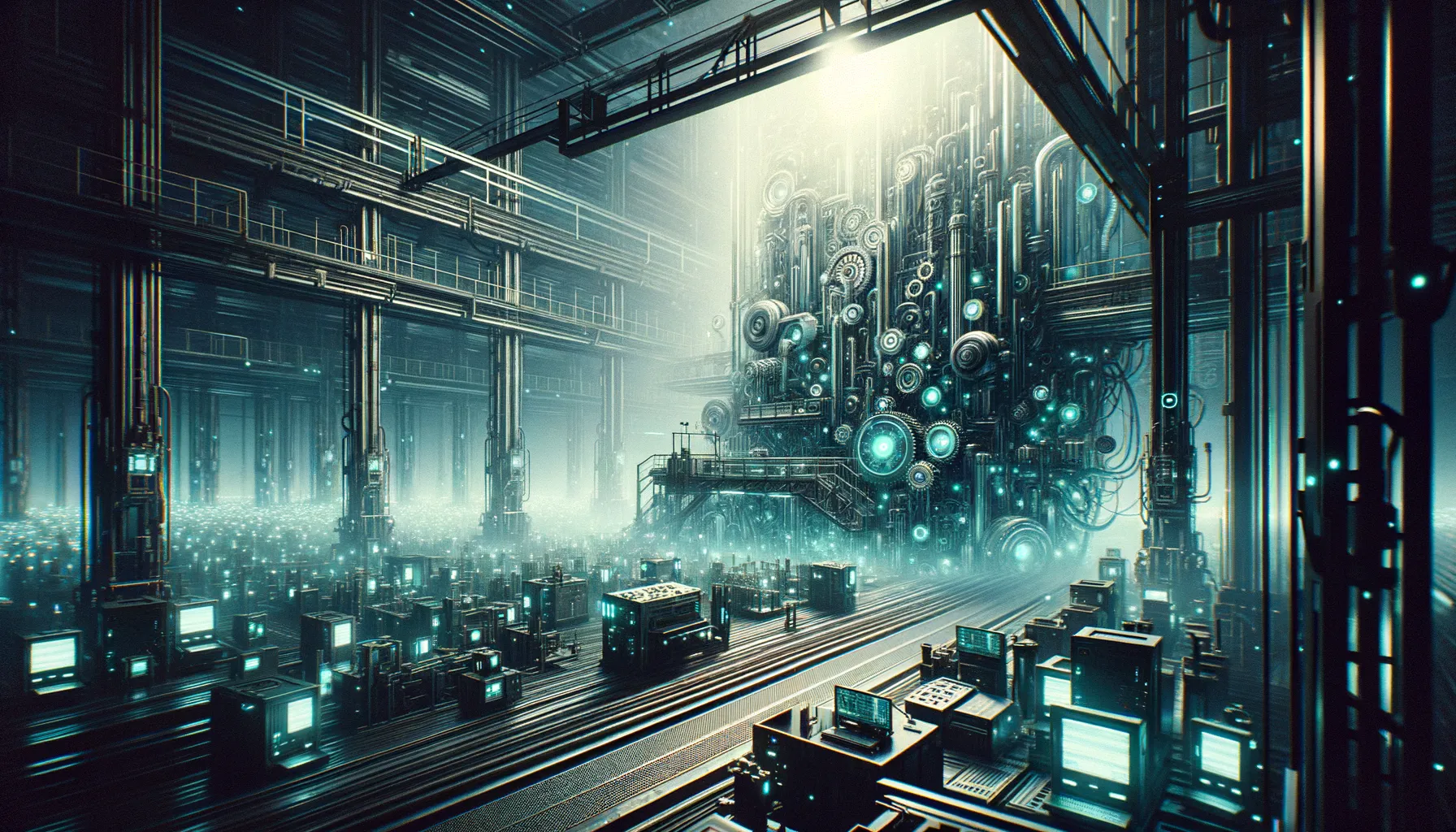Saturday 24 August 2024, 03:01 PM
Exploring the transformative impact of industrial automation on manufacturing
Industrial automation transforms manufacturing by boosting efficiency, safety, and quality through robots and machines, reducing human intervention, costs, and environmental impact while creating tech-savvy opportunities and necessitating workforce upskilling.
The Dawn of a New Era in Manufacturing
Welcome to the future of manufacturing! A future where robots and machines perform complex tasks with precision and efficiency, carrying forward the banner of innovation and technological prowess. Industrial automation has carved out a pivotal role in transforming traditional manufacturing landscapes into tech-savvy powerhouses. The journey from manually operated tools to fully automated systems speaks volumes about the advancements we've seen.
Understanding Industrial Automation
At its core, industrial automation involves using control systems, such as computers or robots, and information technologies to handle various processes and machineries in an industry. The goal? To replace human intervention. Automation can enhance productivity, quality, and consistency in manufacturing processes. It’s like having an army of tireless workers who never sleep, eat, or even take coffee breaks!
Safety and Precision: A Win-Win
One of the prime benefits of automation is increased safety. Machines take over dangerous tasks such as handling heavy equipment or toxic chemicals, reducing accidents and enhancing workplace safety. Moreover, robots don't just work hard; they also work smart. Equipped with advanced sensors and programming, they can execute tasks with incredible precision, reducing human error and increasing the quality and consistency of products.
Cost Reduction and Efficiency
Imagine reducing the cost of production without compromising on quality. Sounds like a dream, right? Well, industrial automation makes this possible. Initial setup costs aside, automated systems save money in the long run by speeding up production times, reducing labor costs, and minimizing waste through precise control over material use.
Automation also allows for 24/7 production at consistent speeds, without the need to manage shifts or worry about human fatigue. This round-the-clock operation drastically increases overall efficiency and output, keeping businesses competitive in a fast-paced market.
The Environmental Edge
Sustainability is no longer just a buzzword; it's a business imperative. Automated systems optimize energy use and manage resources efficiently, leading to less waste and lower energy consumption. This not-better-managed resource allocation not only helps reduce the environmental impact of manufacturing but also aligns with global initiatives for sustainability. It's a significant step forward in making industrial processes leaner and greener.
Upskilling the Workforce: Embracing Change
A common concern with automation is the potential displacement of jobs traditionally done by humans. While it's true that certain roles become redundant, automation also creates opportunities for new, more technically skilled roles. Workers now have the chance to upskill, shifting from manual, repetitive tasks to more strategic, tech-focused roles that oversee and manage automated systems. This shift doesn’t diminish the workforce; instead, it transforms it, equipping employees with future-ready skills that increase their value and adaptability in the industry.
Case Studies: Success Stories in Automation
Automotive Excellence
Take the automotive industry, for example. Here, automation has been a game-changer, enhancing everything from assembly lines to inspection processes. Robots handle tasks like welding and painting with unmatched precision, speed up production times, and ensure that each vehicle meets high-quality standards. This not only boosts output but also drastically reduces human error and safety hazards, creating a smoother, safer, and more reliable production flow.
Pharmaceutical Precision
In the pharmaceutical sector, precision is paramount. Automated systems allow for meticulous control in the production of medications, ensuring exact dosages and contamination-free packaging. This high level of precision enhances patient safety and trust in pharmaceutical products, proving that automation can carry significant impacts far beyond just efficiency and cost.
Future Trends in Industrial Automation
The horizon of industrial automation is continuously expanding. With developments like the Internet of Things (IoT), artificial intelligence (AI), and machine learning, the future looks even more promising. IoT enables machines to communicate with each other and with management systems, creating networks of intelligent devices that can self-optimize and make smart decisions in real time.
AI and machine learning take this a step further by not only automating physical tasks but also by providing cognitive insights. Machines can predict maintenance needs, adapt to new production demands, and even innovate processes through continual learning and adaptation.
Preparing for a Seamless Transition
Embracing industrial automation requires careful planning and consideration. Businesses need to evaluate their current systems, determine potential integration challenges, and develop a cohesive strategy that includes staff training and development. It's also crucial to choose the right technology partners and solutions that align with specific business goals and industry requirements.
Conclusion: Embracing the Automated Future
The transformative impact of industrial automation on manufacturing is profound and far-reaching. From enhancing production efficiency and safety to reducing costs and supporting environmental sustainability, the benefits are compelling. As we look towards a future where digital factories and smart manufacturing become the norm, it's clear that automation is not just a technological upgrade but a vital step toward a more efficient, sustainable, and human-centric manufacturing environment.
Remember, the goal of automation is not to replace humans but to augment human capabilities and create a more productive, safe, and innovative workplace. As we journey through this era of technological marvels, let's embrace these changes with an open mind and a readiness to adapt, ensuring that we harness the full potential of industrial automation in the evolution of manufacturing. Welcome to the future — it’s automated, and it’s amazing!

